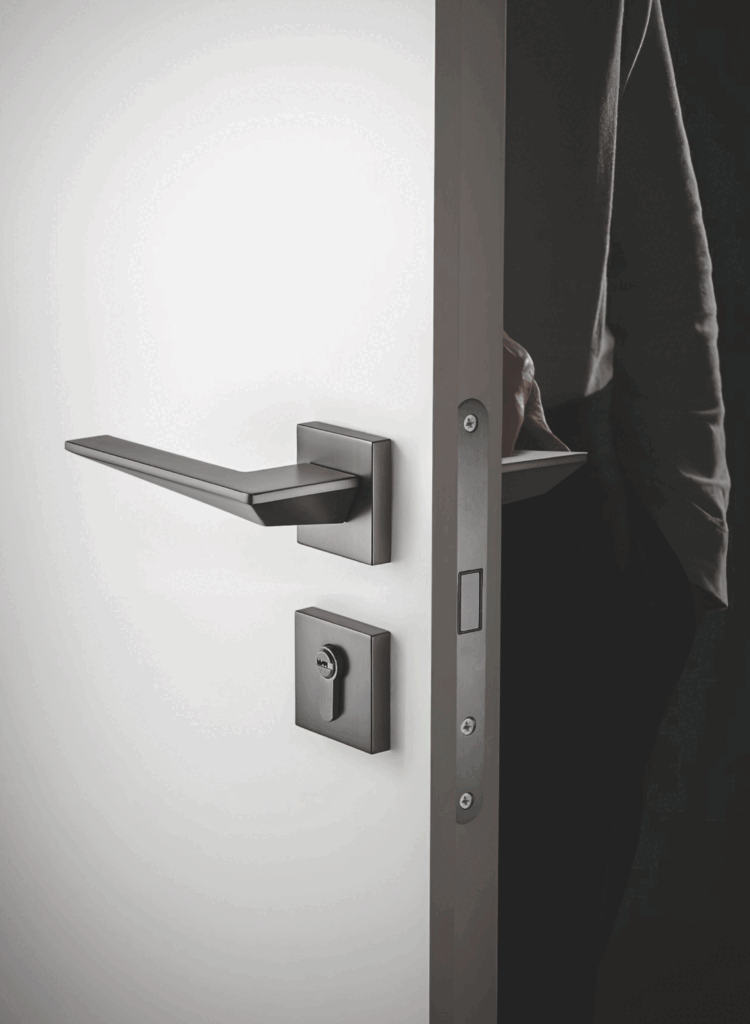Introduction: Why Different Settings Require Different Hardware


When it comes to door hardware, one size does not fit all. Whether you’re outfitting a high-rise office building or a suburban home, choosing the right hardware is crucial for ensuring security, functionality, and longevity. Commercial and residential door hardware are designed with distinct needs in mind, catering to different environments, usage patterns, and aesthetic preferences.
Ever walked into an office building and noticed that the door handles are built like they’re ready to fend off an army, while the ones at home are more about looking pretty? That’s because commercial and residential door hardware have very different jobs to do. One is built to withstand a hurricane of daily use, and the other is made to blend seamlessly into your home decor.
As someone who has been in the door hardware industry for over 20 years, working with clients ranging from door manufacturers to regional hardware brands and building material supermarket managers, I’ve seen firsthand how the right choice of hardware can make all the difference. In this blog post, we will explore the key differences between commercial and residential door hardware, provide product comparisons, and offer guidance on selecting the best options for each setting.
Key Differences: Durability, Design, Functionality
1. Durability
- Commercial Hardware: Durability is a top priority in commercial settings. Doors in office buildings, schools, hospitals, and retail environments experience heavy traffic, often being used hundreds or even thousands of times a day. As a result, commercial door hardware is designed to withstand constant use and harsh conditions. This hardware is typically made from robust materials like stainless steel, high-grade brass, and heavy-duty aluminum. Products such as mechanical door locks, door handles, and door closers are often built to meet rigorous testing standards, such as ANSI/BHMA grades, ensuring they can endure frequent usage over many years.
- Residential Hardware: In contrast, residential door hardware is designed for lighter use. While still durable, it doesn’t need to withstand the same level of wear and tear as commercial hardware. Materials like brass, zinc alloy, and stainless steel are common, but the focus is more on aesthetics and ease of use. For example, a door handle or a mechanical lock in a home is likely to be used only a few times a day, so it doesn’t require the same heavy-duty construction as its commercial counterpart.
2. Design
- Commercial Hardware: In commercial settings, the design of door hardware often prioritizes functionality and compliance with safety regulations. While aesthetics are important, the primary focus is on meeting building codes and ensuring accessibility. For example, commercial door handles often feature ADA-compliant lever designs that are easy to operate, even for individuals with disabilities. Additionally, finishes like satin stainless steel or bronze are commonly chosen for their ability to withstand frequent cleaning and exposure to harsh conditions.
- Residential Hardware: In residential settings, design plays a more prominent role. Homeowners often seek door hardware that complements their interior décor and reflects their personal style. This means a broader range of finishes, such as polished chrome, antique brass, or matte black, and more decorative elements in the design. For instance, door handles and hinges in a residential setting may feature intricate patterns or unique shapes that align with the home’s architectural style.
3. Functionality
- Commercial Hardware: Functionality is critical in commercial environments where security and operational efficiency are paramount. Commercial door hardware often includes advanced features such as master key systems, panic bars, electronic access control, and fire-rated door closers. These features are designed to enhance security, facilitate easy access control, and ensure the safety of building occupants in emergencies. For example, fire-rated door closers are essential in commercial buildings to prevent the spread of fire and smoke.
- Residential Hardware: While functionality is also important in residential settings, the features are often simpler and more focused on convenience. For example, smart locks that allow homeowners to control access remotely, or peepholes that provide a clear view of visitors at the door, are popular choices. These features prioritize user-friendly operation and the integration of modern technology into everyday life.
Product Comparison: Best Options for Each Setting
1. Mechanical Door Locks
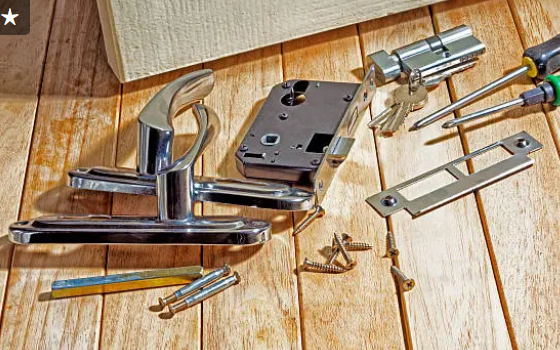

- Commercial: Mortise locks are often preferred in commercial buildings due to their durability and security features. These locks are embedded into the door itself, making them more resistant to tampering. Brands like Schlage and ASSA ABLOY offer high-security mortise locks designed for heavy-duty commercial use.
- Residential: For homes, cylindrical locks are more common. These locks are easier to install and provide sufficient security for residential use. They are available in a variety of styles and finishes to match the home’s décor.
2. Door Handles

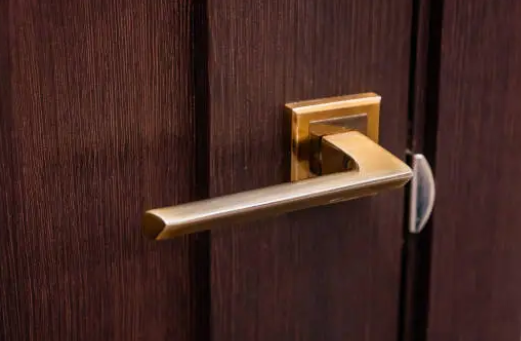
- Commercial: Lever handles are the standard in commercial settings, particularly those that comply with ADA requirements. These handles are designed for easy operation and are available in durable finishes like stainless steel and satin chrome.
- Residential: In homes, door handles are often more decorative. Knob handles and lever handles are both popular, with a wide range of finishes and designs to suit different tastes. Homeowners might choose a polished brass finish for a classic look or a matte black finish for a modern, industrial style.
3. Door Hinges
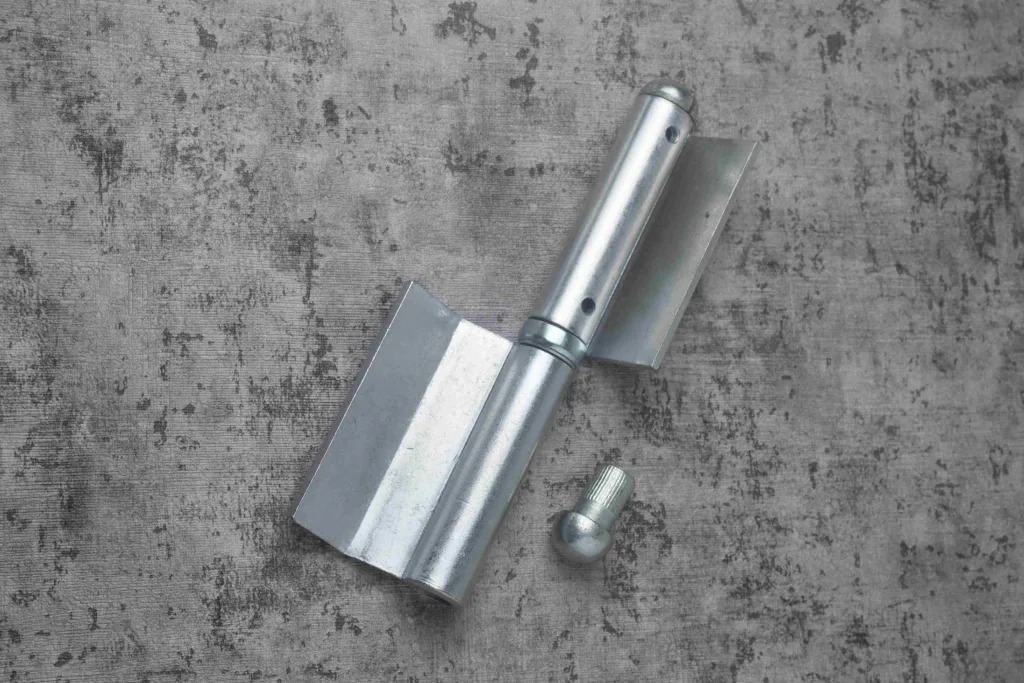
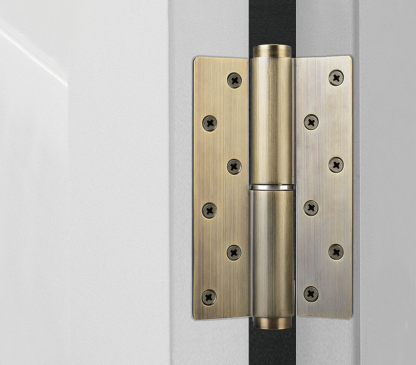
- Commercial: Heavy-duty hinges, such as continuous hinges (also known as piano hinges), are common in commercial doors due to their ability to evenly distribute weight and handle frequent use. These hinges are ideal for high-traffic doors that require long-lasting support.
- Residential: In a residential setting, butt hinges are most commonly used. They are available in various sizes and finishes, offering both function and aesthetic appeal. Decorative hinges with patterns or unique shapes are also popular in homes.
4. Peepholes


- Commercial: In commercial buildings, wide-angle peepholes with higher security features, such as shatterproof lenses, are often used. These peepholes are designed to provide a broad view while ensuring the safety of the building’s occupants.
- Residential: Homeowners might opt for digital peepholes that provide a clear and enlarged view of the outside, often with integrated video recording or smartphone connectivity for added security and convenience.
5. Door Closers


- Commercial: Surface-mounted door closers are a staple in commercial settings, where automatic door closing is necessary for safety and energy efficiency. These closers are often adjustable to meet the needs of high-traffic areas.
- Residential: In residential applications, concealed door closers might be preferred for aesthetic reasons. These closers are hidden within the door frame, maintaining a clean look while providing the necessary functionality.
Conclusion: Tailoring Hardware Choices to Specific Needs
Selecting the right door hardware for a project is about more than just choosing between commercial and residential products. It’s about understanding the specific needs of the environment and selecting products that offer the right balance of durability, design, and functionality. For commercial settings, where security, heavy use, and regulatory compliance are paramount, opting for robust, high-grade hardware is essential. In residential settings, where aesthetic appeal and ease of use take precedence, choosing hardware that enhances the home’s design while offering sufficient security is key.
As a professional with decades of experience in the door hardware industry, I have worked with clients worldwide to help them find the best products for their specific needs. Whether you’re outfitting a new commercial building, updating a residential property, or managing procurement for a regional hardware brand, understanding the differences between commercial and residential door hardware will ensure that you make the best choices for your projects.
Share This Story, Choose Your Platform!

